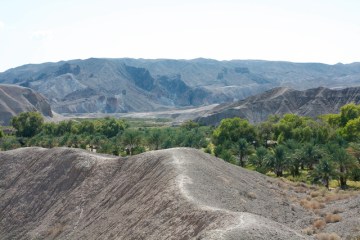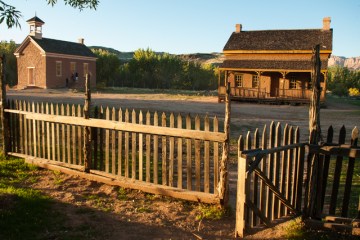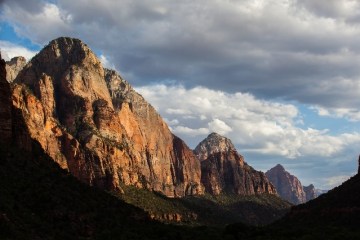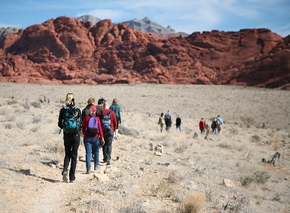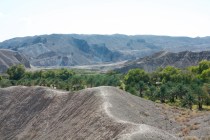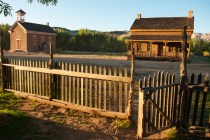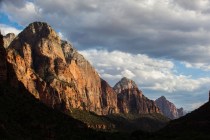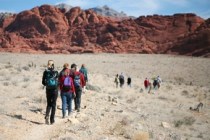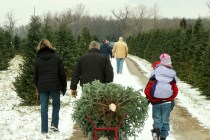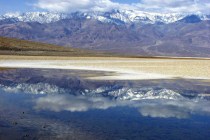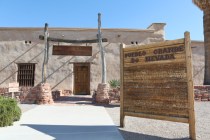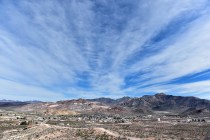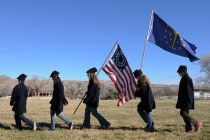Take scenic excursion on Cottonwood Valley Road
Among the pleasures of living in Nevada are the huge expanses of open space surrounding our scattered cities and towns. Nevadans seeking downtime in the outdoors do not have to go far from home. Even in an urban area such as Las Vegas, dozens of recreational destinations wait to be explored, accessible within minutes.
Scenic side roads lead to places such as Cottonwood Valley, a lightly traveled back road into Southern Nevada’s mining past at old Goodsprings. Located off busy state Route 160, the road to Pahrump, Cottonwood Valley runs south between the southern Spring Mountains, topped by 8,500-foot Mount Potosi, and the rugged hills of the Bird Spring Range.
The 16-mile road over 4,900-foot Cottonwood Pass seems as far removed from civilization now as when frontier travelers traversed the nearby Old Spanish Trail. The road accesses wild horse and burro trails and old mine roads popular with hikers, horsemen, ATV riders and mountain bikers. The trail network explores many miles of the valley, arroyos, desert and forested foothills.
To reach the area, follow Route 160 west. Watch for the turnoff to the village of Blue Diamond and the Red Rock Canyon National Conservation Area’s scenic drive, state Route 159. From this junction, continue west about six miles, watching for a set of power lines and a well-defined graded road cutting south. Turn off the highway onto the graded road.
A number of improvements near the turnoff include cleared parking areas for vehicles and trailers hauling bikes, off-highway vehicles or horses. Although the first few miles of the road are open to passenger vehicles, the surface suffers from heavy use and occasional damaging rains. Expect washboard conditions and drive carefully. It’s best to have a high-clearance vehicle after the first few miles. The route becomes narrower and rougher as it crosses washes and climbs the rocky pass farther to the south before joining a good graded mining road as you approach Goodsprings.
April may well be the best time of year to travel the Cottonwood Valley Road. Even in years of little rainfall, there will be some show of spring wildflowers along this route. In years of ample rains, it turns into a garden of native plants. Often swept by wildfires, the valley no longer supports its namesake cottonwood trees. The frequent fires clear the area of plants competing for sunlight and leave soil-enriching ash, creating favorable conditions for wildflowers. The region supports flowers found in the Intermountain West, the Sierras, the Great Basin, the Mojave Desert and a few found only in the Red Rock area. For more details on the plants of the area, inquire at the Bureau of Land Management’s Red Rock Canyon visitor center.
The Cottonwood Valley Road runs mostly over BLM land, cutting briefly through Humboldt-Toiyabe National Forest as it reaches the rocky, wooded summit. Varied terrain along the route provides different habitats for plants.
Along the first few miles of the road, the grassy, rolling landscape is as close to a prairie as you’ll find in Nevada. Sandy areas and rocky hillsides foster different kinds of plants than grasslands. In the washes cut by the road, look for the Texas redbud, a small tree with attractive, heart-shaped leaves and fragrant fuchsia blossoms at this time of year. A wide variety of cactuses grow throughout the area, most blooming from April at lower elevations well into summer at higher elevations. People who hike the trails will discover the most flowers, but even those who never get out of their vehicle can’t miss the flowers crowding the road.
A short side road takes you to the brink of a high overlook with sweeping views of the city filling the not-so-distant valley. In the past, observers would almost always see bands of wild mustangs come for water near the base of the cliff, but there are far fewer horses in the area now.
The wide mining road takes you into quiet little Goodsprings. In its heyday, the town bustled with commerce, mines, mills and a railroad. Today it boasts one of the state’s oldest saloons as well as one of its oldest schools.
Margo Bartlett Pesek’s column appears on Sundays.




